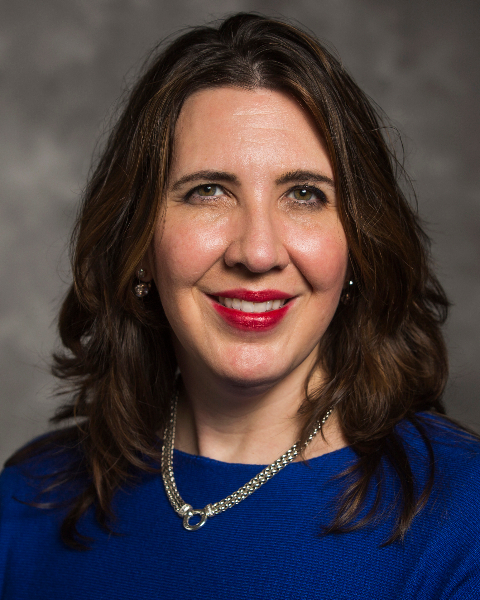PQA 08 - PQA 08 Genitourinary Cancer, Patient Safety, and Nursing/Supportive Care Poster Q&A
3175 - Enhancing Workflow Efficiency for Managing Patients with Cardiac Implantable Electronic Devices in Radiation Oncology: A Lean Approach
Tuesday, October 1, 2024
2:30 PM - 3:45 PM ET
Location: Hall C
Screen: 29

Beth Ghavidel, MS
Winship at Emory University Hospital Midtown
Atlanta, GA
Presenter(s)
B. Ghavidel, M. Washington, O. Kayode, A. B. Patel Jr, and W. G. Chin; Department of Radiation Oncology, Winship Cancer Institute of Emory University, Atlanta, GA
Purpose/Objective(s): Patients with cardiac implantable electronic devices (CIEDs) undergoing radiotherapy treatments present a complex challenge for all clinics. The delicate balance between administering effective treatment and ensuring the safety of patients with CIEDs necessitates a meticulous approach to workflow management. We undertook a comprehensive analysis leveraging failure mode assessment alongside the TG-203 guidelines. This initiative aimed to refine our existing workflow in managing patients with CIEDs undergoing radiation therapy within the realm of radiation oncology. The aim of this study is to review the effectiveness of communication between nursing, physician, and medical physics teams for completion of Special Physics Consultation. Materials/
Methods: Our approach involved a collaborative effort among diverse teams, including nursing staff, medical dosimetrists/physicists, radiation oncologists, cardiologists, and radiation therapists. We evaluated our current workflow to pinpoint any inefficiencies or areas opportune for improvement, while utilizing the TG-203 guidelines as a framework of best practices. We integrated checklists into the consultation and CT-simulation processes to incorporate medical device data into the hospital EHR. This data was then interfaced into the department radiation EHR system for improved access by our physics and therapy staff. Additionally, we employed a nurse-driven department radiation EHR encounter to capture actionable tasks for the radiation oncology team members. We evaluated the effectiveness of the redesigned workflow through performance metrics, stakeholder feedback, and ongoing monitoring, with a focus on enhancing signal strength across the interdisciplinary team.
Results: Between December 1, 2023, and February 29, 2024, a total of 1,356 individual patients sought care, undergoing consultations, reevaluations, or CT simulation procedures. Among these patients, a total of 30 patients were found to have CIEDs within the nursing checklists. Out of the 30 patients with a CIED, nurses sent signals for 80% (n=24) to the physics team. Within this same date range and patient cohort, 24 patients received documented evidence of a Special Physics Consultation (SPC) for CIED. Upon further chart review it was found that out of the 6 patients; a total of 4 patients did not receive radiation therapy and 2 patients received radiation therapy, but were missed for SPC.
Conclusion: Our study highlights the importance of multidisciplinary management in radiation oncology, especially concerning patients with cardiac implantable electronic devices (CIEDs). Through collaborative efforts and adherence to established guidelines, we successfully refined our workflow to enhance communication and streamline efficiency. Ongoing monitoring and refinement is essential in sustaining these improvements and addressing documentation challenges
Purpose/Objective(s): Patients with cardiac implantable electronic devices (CIEDs) undergoing radiotherapy treatments present a complex challenge for all clinics. The delicate balance between administering effective treatment and ensuring the safety of patients with CIEDs necessitates a meticulous approach to workflow management. We undertook a comprehensive analysis leveraging failure mode assessment alongside the TG-203 guidelines. This initiative aimed to refine our existing workflow in managing patients with CIEDs undergoing radiation therapy within the realm of radiation oncology. The aim of this study is to review the effectiveness of communication between nursing, physician, and medical physics teams for completion of Special Physics Consultation. Materials/
Methods: Our approach involved a collaborative effort among diverse teams, including nursing staff, medical dosimetrists/physicists, radiation oncologists, cardiologists, and radiation therapists. We evaluated our current workflow to pinpoint any inefficiencies or areas opportune for improvement, while utilizing the TG-203 guidelines as a framework of best practices. We integrated checklists into the consultation and CT-simulation processes to incorporate medical device data into the hospital EHR. This data was then interfaced into the department radiation EHR system for improved access by our physics and therapy staff. Additionally, we employed a nurse-driven department radiation EHR encounter to capture actionable tasks for the radiation oncology team members. We evaluated the effectiveness of the redesigned workflow through performance metrics, stakeholder feedback, and ongoing monitoring, with a focus on enhancing signal strength across the interdisciplinary team.
Results: Between December 1, 2023, and February 29, 2024, a total of 1,356 individual patients sought care, undergoing consultations, reevaluations, or CT simulation procedures. Among these patients, a total of 30 patients were found to have CIEDs within the nursing checklists. Out of the 30 patients with a CIED, nurses sent signals for 80% (n=24) to the physics team. Within this same date range and patient cohort, 24 patients received documented evidence of a Special Physics Consultation (SPC) for CIED. Upon further chart review it was found that out of the 6 patients; a total of 4 patients did not receive radiation therapy and 2 patients received radiation therapy, but were missed for SPC.
Conclusion: Our study highlights the importance of multidisciplinary management in radiation oncology, especially concerning patients with cardiac implantable electronic devices (CIEDs). Through collaborative efforts and adherence to established guidelines, we successfully refined our workflow to enhance communication and streamline efficiency. Ongoing monitoring and refinement is essential in sustaining these improvements and addressing documentation challenges
